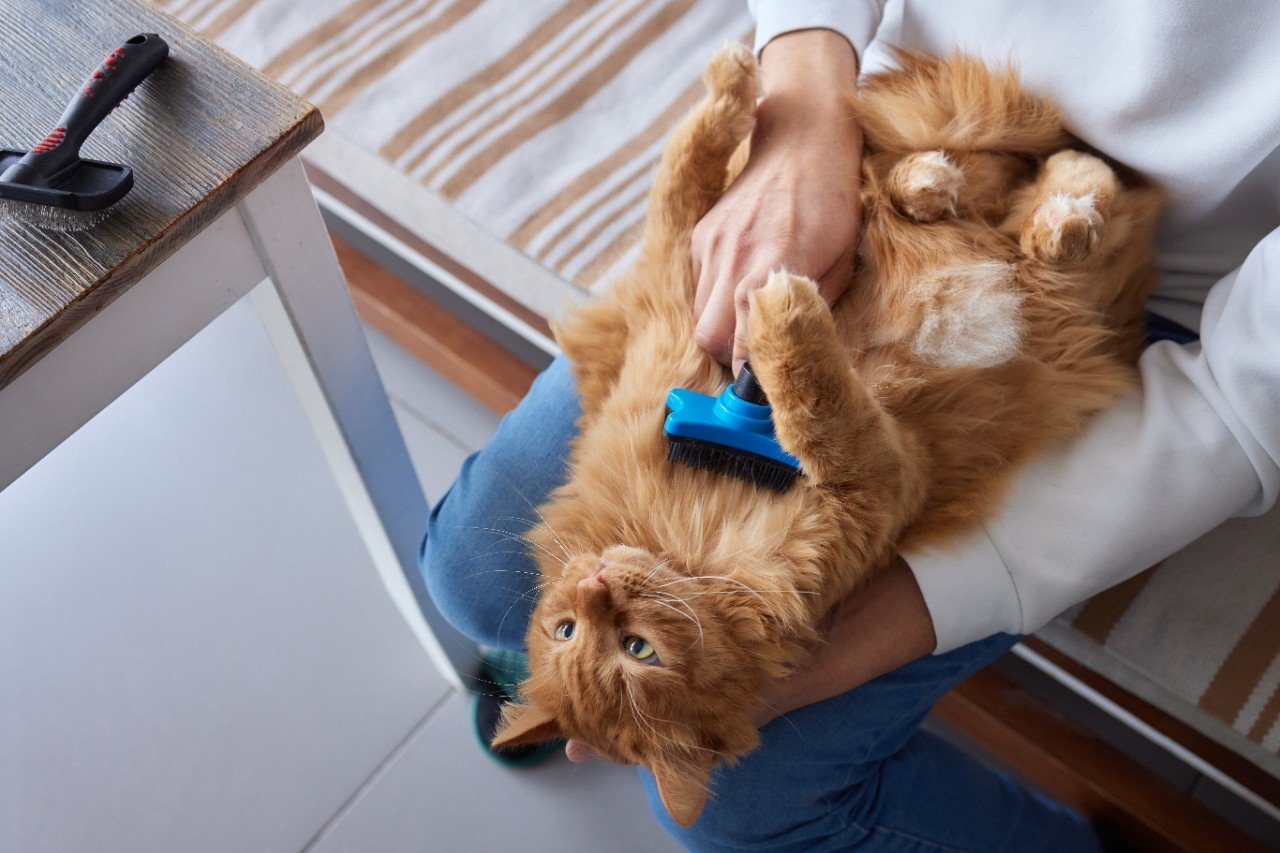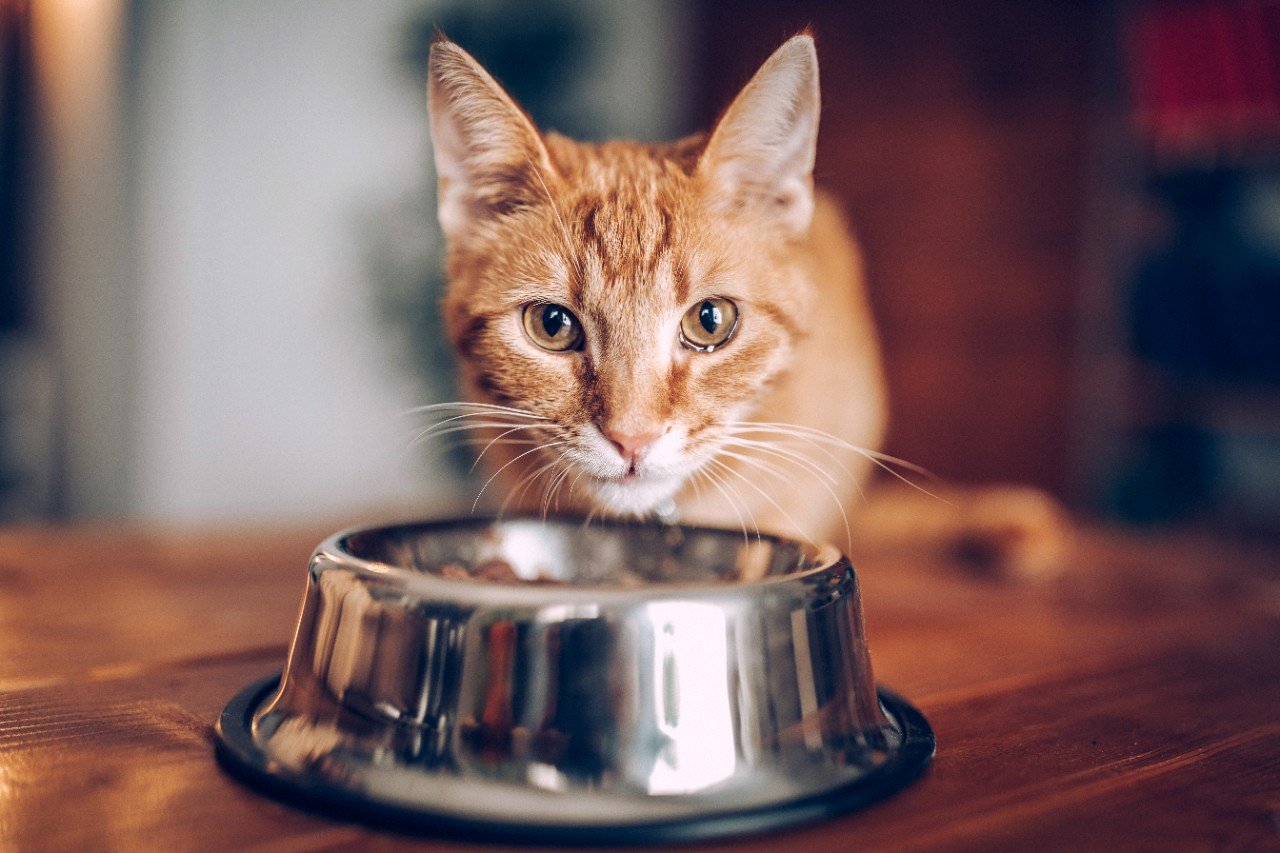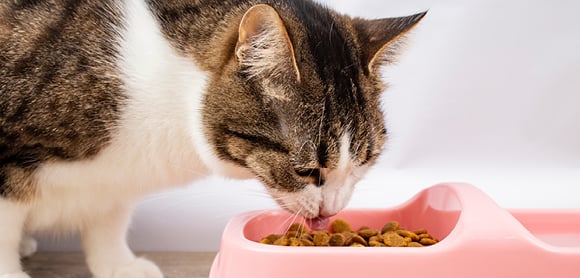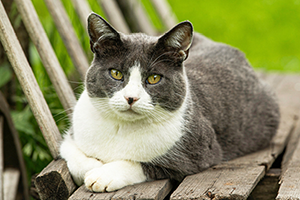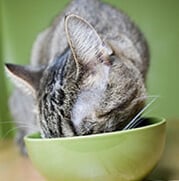What your cat should not eat

Quick Links
Why do cats eat harmful substances?
Curiosity
The idiom ‘curiosity killed the cat’ has its basis in truth. Cats are inquisitive by nature and can sniff, lick and eat things that they should not.
Before cats were domesticated, they had to constantly assess their environment in the wild to keep themselves safe. As a result, domestic cats now seek out new spaces like sheds and cupboards where they can stumble across chemicals and foods that could be harmful for them. To keep your pet safe, ensure dangerous household items are kept well out of your cat’s reach.
Hunger
Hunting instinct
Cats that have previously been strays might still have their scavenging habits and could eat dangerous things because they’re not confident about where their next meal is coming from.
Lack of time in nature
If your cat is an indoor cat, they may not have access to gardens and parks to relieve this chewing instinct. In this instance, they may resort to eating your houseplants, which could be toxic to them.
Tooth and gum problems
If your cat seems to have a strong urge to chew, invest in some chew toys to deter them from harmful materials.
Foods cats should not eat
Alcohol and caffeinated drinks
Even a tiny amount of alcohol could cause your cat to become unconscious, affect their liver and kidneys, and impact their brain. Any drinks that contain caffeine can also cause your cat to become restless, suffer from rapid breathing, heart palpitations and muscle tremors.
Onions and garlic
If there are onions or garlic left over on a pizza covered with cheese or meat, this could be very tempting to a cat’s taste buds. Eating raw or cooked onions or garlic could cause bloating, gases and digestive issues for your cat.
Milk and dairy products
As cats are lactose-intolerant, feeding them milk could give them severe stomach and digestive problems.
Chocolate and nuts
Grapes, nuts and raisins
Even a small piece of grape or raisin could have fast and serious health implications for your cat. From kidney failure to digestive distress, your cat could become seriously ill – so these should be avoided at all costs.
Nuts are also not good for cats. In particular, macadamia nuts contain a toxin that can affect a cat’s nervous system and muscles.
Raw eggs, raw meat and bones
Cats are obligate carnivores that get their nutrients from meat. It’s why they hunt prey in the garden and devour meat-rich cat foods. This might lead you to think it’s safe for your cat to eat raw meat and eggs, since these foods replicate the diet your cat would eat in the wild.
The problem is that the raw meat and eggs from your fridge have been processed. The animals have not been instantly killed and consumed; instead, there has been an opportunity for salmonella or E. coli to develop. If your cat ate foods affected by these bacteria, they could become dangerously ill with severe digestive problems and fatigue.
Cats often want to chew chicken bones, fish bones or lamb bones because they taste of meat. While this may appear to be harmless, the danger comes when the bones splinter under the pressure of your cat’s jaws. These shards of bones can pierce the gums, tongue and throat of your cat, which can be painful and very dangerous.
Unbaked bread dough
Xylitol
How to stop cats from eating dangerous foods
As well as making sure your cat eats a healthy balanced diet, keep hazardous or poisonous food out of their reach. Install cat-proof locks on cupboards if your pet is particularly inquisitive, and don’t let your cat on the worktop when you’re cooking.
It’s best not to feed your cat table scraps – so be extra vigilant when you have visitors or at certain times of the year, such as holiday periods, when there’s more food around.
Which human foods can cats eat?
Cats can eat certain fruits and some vegetables, including:
- Apples
- Bananas
- Pears
- Blueberries
- Strawberries
- Raspberries
- Cranberries
- Watermelon
- Pineapple
- Carrots
- Cucumbers
- Celery
- Green beans
- Lettuce
However, while ok if ingested in small amounts, it’s not recommended to feed your cat fruits as they’re high in sugar, can cause diabetes or can make your cat gain weight. Likewise, while certain vegetables can be eaten in moderation, it's best to just stick to cat food, where your cat can get all of their required nutrients.
Additionally, any kind of meat that is boiled, grilled or baked and served plain (with no sauce or seasoning) can be eaten by your cat. Boiled fish contains vitamins, minerals and fatty acids, while cooked prawns can be eaten occasionally. Eggs, either cooked or scrambled, are also a good source of protein. However, bacon and ham should only be served very occasionally as a treat, as these are high in fat and salt.
Finally, unrefined whole grains and wheat cereals – such as oatmeal and rice – are fine to be eaten occasionally.
Which harmful household items have cats been known to eat?
String or wool
Cats like to play with balls of wool, string and other long trailing ropes for entertainment – but if they accidentally ingest some, it can be risky.
String becomes a ‘linear foreign body’ if it's swallowed. When the long string gets into the intestines, which are coiled up and full of bends, the string can cause obstructions and knots, and can slice through the soft tissue of the gut.
Plastic or rubber items
Fat balls
Glues and adhesives
Should your cat perforate the packaging, the glue could leak into their mouth, burning the sensitive skin in their throat, sticking their lips and gums together, and damaging their kidneys and liver with highly toxic chemicals.
Medicines and vitamins
Many medicines, such as paracetamol, which are safe for humans are very harmful to cats. Not only because cats are significantly smaller than humans, meaning even the smallest amount is a significant overdose, but because cats do not have the enzyme in their liver to break the chemicals down.
Vitamin tablets – such as vitamin D – can cause serious health problems such as kidney failure in cats. Vitamin D is also found in supplement tablets such as cod liver oil and other human medicines, so be sure to keep these away from curious paws.
Household cleaners and rodenticides
Certain flowers, trees and mushrooms
Lilies are very common household plants yet are extremely dangerous to cats, with every part of the plant being toxic to them. Should your cat chomp on any part of the plant, they are at risk of severe liver and kidney damage. Lilies are especially risky for house cats that crave being able to chew on plants.
Other examples of :
- Jimson weed
- Azaleas
- Daffodils
- Foxgloves
- Geraniums
- Yew trees
There are also lots of different types of fungi that can be poisonous to cats. Ingesting any of these listed plants can result in dizziness, abdominal cramps, an upset stomach, vomiting or liver failure. In severe cases, ingestion can also be fatal.
Electrical cables
Antifreeze, weedkiller and slug killer
Some chemicals, such as antifreeze or ethylene glycol, smell and taste sweet to cats. As a result, cats can seek out the substances without understanding they’re poisonous.
If you’re planning on using slug pellets or weedkiller in your garden, or filling up your car with antifreeze, keep your cat inside. It’s essential that chemicals are kept out of reach of cats.
Permethrin
Zinc
What should you do if you think your cat has eaten something harmful?
If you’d like further information about what cats can’t eat and you have cat insurance with Petplan, you can also access our Pet Expert Chat by logging into your My Petplan account and heading to the My Support area.
Petplan is a trading name of Pet Plan Limited (Registered in England No. 1282939) and Allianz Insurance plc (Registered in England No. 84638), Registered office: 57 Ladymead, Guildford, Surrey GU1 1DB.
Pet Plan Limited is authorised and regulated by the Financial Conduct Authority. Financial Services Register No. 311969. Allianz Insurance plc is authorised by the Prudential Regulation Authority and regulated by the Financial Conduct Authority and the Prudential Regulation Authority. Financial Services Register No. 121849. Pet Plan Limited is a subsidiary of Allianz Insurance plc.



